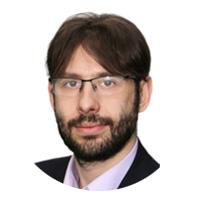


The project will make an impact in important societal needs in the fields of energy harvesting and sensing for environmental, safety, and medical applications, which are relevant to the entire global population. The development of any of these high-tech areas is associated with the use of new materials. The scope of this proposal is to advance 2D materials by adding to them novel functionalities for improved energy-harvesting and sensing applications. The creation of nanopores or the attachment of chemically active compounds will significantly expand the capabilities of such materials, for example, it will enable the development of universal chemical sensors for the detection of volatile organic compounds. The project proposes to solve an important problem of functionalization, localized on nanoscale, which will allow minimizing the proposed devices.
The disruptive technique to be used in this proposal for nanometer-precision patterning of 2D materials is based on one of the latest nanophotonics advancements, the photonic nanojets. It is possible to functionalize 2D materials by laser with spatial resolutions significantly lower than the diffraction limit, as light in a photonic nanojet can be concentrated into a volume that is one order of magnitude smaller. The project provides for a fairly simple and scalable technology. The low technological hazard of the method and invariance for materials are the basis for economic feasibility. New materials and devices arising from this project will be exploited by the industry, strengthening the EU economy and technological excellence in the fields of energy, electronic technology, health industry, security, environmental and industrial monitoring.
30.08.2023 to 29.08.2025
This project has received funding from the European Union’s Horizon Europe research and innovation program under the Marie Sklodowska-Curie Postdoctoral Fellowships grant agreement No 101067553 (LANAFUSEHA). Views and opinions expressed are however those of the authors only and do not necessarily reflect those of the European Union. Neither the European Union nor the granting authority can be held responsible for them


Dr. Sergey Starinskiy
Postdoctoral Research Fellow, TPCI-NHRF

Dr. Maria Kandyla (Supervisor)
Senior Researcher, TPCI-NHRF
Dr. Sergey Starinskiy
Postdoctoral Fellow, TPCI-NHRF
email: [email protected]
Dr. Maria Kandyla (Supervisor)
Senior Researcher, TPCI-NHRF
email: [email protected]
Tel: +30.210.72.73.802